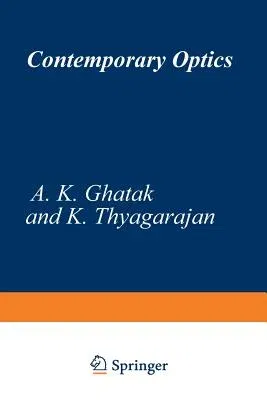A Ghatak
(Author)Contemporary Optics (Softcover Reprint of the Original 1st 1978)Paperback - Softcover Reprint of the Original 1st 1978, 12 December 2012

Qty
1
Turbo
Ships in 2 - 3 days
In Stock
Free Delivery
Cash on Delivery
15 Days
Free Returns
Secure Checkout
Part of Series
Optical Physics and Engineering
Print Length
370 pages
Language
English
Publisher
Springer
Date Published
12 Dec 2012
ISBN-10
1468423606
ISBN-13
9781468423600
Description
Product Details
Author:
Book Edition:
Softcover Reprint of the Original 1st 1978
Book Format:
Paperback
Country of Origin:
NL
Date Published:
12 December 2012
Dimensions:
22.86 x
15.24 x
2.01 cm
ISBN-10:
1468423606
ISBN-13:
9781468423600
Language:
English
Location:
New York, NY
Pages:
370
Publisher:
Weight:
512.56 gm

